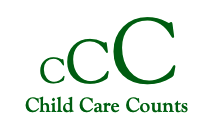
Video series ‘plants seeds’ for home child care businesses
By Chris Mays
BRATTLEBORO — A new video series delves into many of the questions that might pop up when considering the creation of a home-based child care business.
The Windham County Child Care Counts Coalition has been thinking about ways to get at its mission to maintain and expand local child care slots.
“We’re trying to think of strategies to encourage people to participate in that,” said Chloe Learey, who initiated the coalition and serves as executive director of Winston Prouty Center for Child and Family Development. “I think the intention was to plant seeds with people, that it wouldn’t be so hard.”
Learey said some people may have realized they want to work at home after the COVID-19 pandemic and could be interested in starting a child care business. She described home child care businesses being easier to set up than center-based ones.
For the “Starting a Child Care Business in your Home” series, Learey reached out to local experts to weigh in. Her hope is for viewers to “put a name to a face” and perhaps feel comfortable reaching out for help.
“If just one person watches this and decides to open a business, that would be great,” she said.
Marty Cohn, a member of the coalition and a public relations professional, said the coalition stumbled upon a concept called the “child care business lab” in which people from a cohort go on to creating their own business. The coalition feels the idea is interesting but acknowledged the wide array of resources already available in the county.
“We have experts right here,” Cohn said. “Having people sit down in a course seemed like a barrier.”
Cohn suggested interested parties can view the video series then follow up in due time. It can be found at winstonprouty.org/child-care-counts and on brattleborotv.org.
Learey conducted the interviews via Zoom. In the first episode, Melanie Zinn, owner and CEO of Horizon, Vernon Village & Mulberry Bush Early Learning Programs, shares her experience in starting a childcare program in her home including the initial challenges, licensing and regulation considerations, and the importance of mentorship.
The second episode features Debra Boudrieau of the Vermont Small Businesses Development Center and Eyad Salha of the Brattleboro Development Credit Corporation sharing resources and information about what it means to start your own business, including creating a business plan and timeline, planning for start-up costs, zoning considerations and more.
Licensing is the topic of the third episode, which has Elaine Crawford, licensing specialist at the Vermont Agency of Human Services’ Child Development Division, talking about what to expect when considering opening a childcare business in your home, including first steps to take, common obstacles and regulation updates. Learey said home-based programs are regulated differently from those at child care centers.
Covered in the last episode is education and professional development. Kim Freeman, early childhood education instructor at the Windham Regional Career Center, and Leigh Marthe, coordinator for academic services at the Community College of Vermont discuss training and professional development opportunities for those considering opening a child care business in their home, including required education and credentials, financial resources, and the apprenticeship and early college programs.
When reaching out to produce the series, Learey said, community members were “very anxious to help.”
“I feel like everyone understands the problem and is motivated to help,” she said. “People were very willing to be part of it.”
Learey said the community has “really good resources” including a local early educators cooperative that supports its members. She believes the pandemic elevated child care as a top issue.
Because child care can be so difficult to find, Learey said, parents will opt for less expensive options.
“I think there are lots of people watching kids in their home that are not part of a regulated program,” she said, believing the videos might help motivate some to turn their informal child care business into a legitimate one.
Currently, Learey counted 16 home-based early learning programs and 27 center-based programs in Windham County.
A long-term project for the coalition involves finding ways to pay child care workers more money. Earlier this year, a fundraising campaign led to retention bonuses going out to those in the field in Windham County.
As part of its “Knowledge Bites” lunchtime webinar series, The Southern Vermont Economy Project will have Learey provide a presentation about the video series in a webinar at noon Thursday, Oct. 17. A link to register for the webinar can be found at brattleborodevelopment.com/svep/.
[Recorded Knowledge Bites webinars can also be found at the same link]


